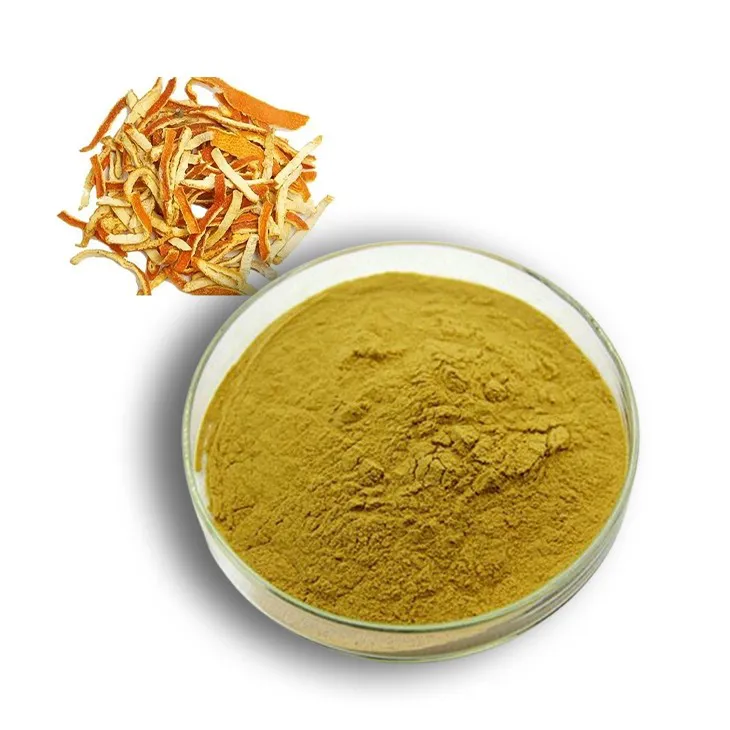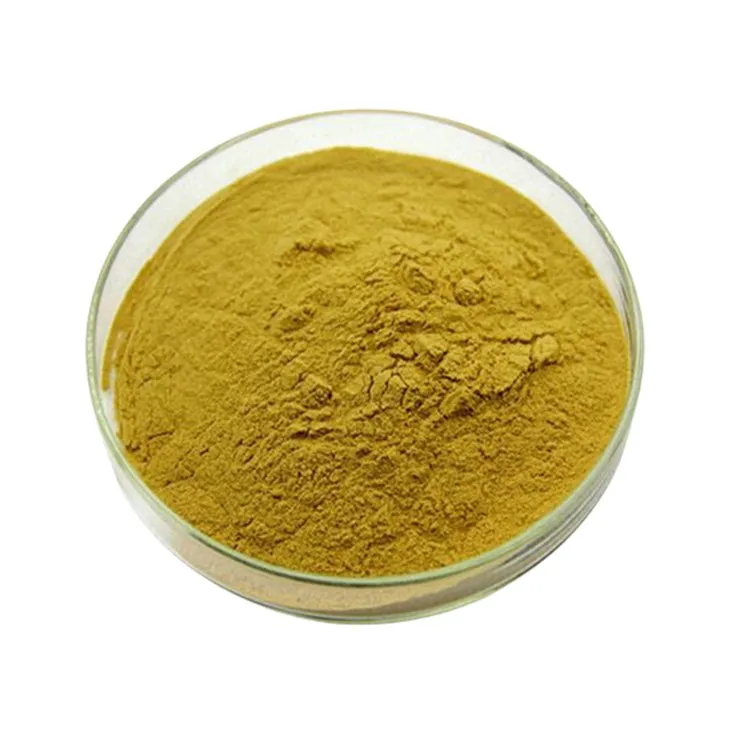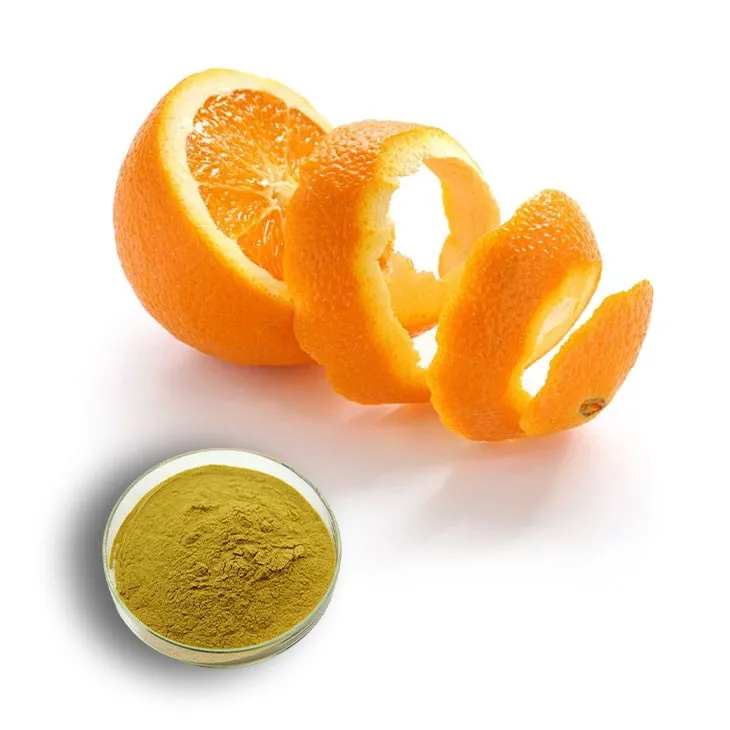- 0086-571-85302990
- sales@greenskybio.com
Protective Effects of Hesperidin: A Comprehensive Exploration
2025-09-25


Hesperidin, a bioflavonoid found predominantly in citrus fruits like oranges, lemons, and grapefruits, is receiving increasing attention for its vast range of health benefits. Known for its potent antioxidant and anti-inflammatory properties, Hesperidin plays a crucial role in protecting the body against a plethora of health ailments. This article delves deep into the protective effects of Hesperidin, exploring its mechanisms of action, potential health benefits, and its applications in promoting human health within the context of both preventative and therapeutic medicine.
Understanding Hesperidin
Hesperidin is a plant-based polyphenolic compound primarily present in citrus fruits, especially in their peels. It is a part of the bioflavonoid family, known for its beneficial effects in plant defense and human health. When consumed, hesperidin is metabolized into hesperetin, which facilitates its absorption in the body. The health-promoting properties of hesperidin arise from its ability to modulate various biological pathways, making it indispensable in the field of natural medicine.

Antioxidant Properties
One of the most pronounced protective effects of hesperidin is its ability to act as an antioxidant. This bioflavonoid exhibits significant free radical scavenging activity, which helps protect cells from oxidative stress. Oxidative stress results from an imbalance between free radicals and antioxidants in the body, leading to cell and tissue damage and contributing to chronic diseases such as cancer, cardiovascular diseases, and neurodegenerative disorders.
By neutralizing free radicals, hesperidin reduces oxidative damage, protecting cellular components such as lipids, proteins, and DNA. Studies have demonstrated hesperidin's potential in enhancing endogenous antioxidant defense systems, indicating its crucial role in maintaining cellular health and preventing oxidative damage-related diseases.

Anti-inflammatory Effects
Hesperidin also exerts potent anti-inflammatory effects, another cornerstone of its protective abilities. Chronic inflammation is a recognized contributor to many chronic conditions, including heart disease, diabetes, and autoimmune disorders. Hesperidin inhibits the production of pro-inflammatory cytokines and enzymes, such as cyclooxygenase (COX) and inducible nitric oxide synthase (iNOS), effectively mitigating inflammatory responses.
Research highlighted in "The Journal of Inflammation" demonstrates that hesperidin modulates inflammatory pathways and reduces the expression of nuclear factor-kappa B (NF-kB), a protein complex that controls the transcription of inflammatory cytokines. By suppressing these pathways, hesperidin aids in reducing inflammation and associated damage, showcasing its potential therapeutic use for inflammatory disorders.

Cardiovascular Protection
Hesperidin's protective effects extend significantly to cardiovascular health, positioning it as a beneficial compound for heart disease prevention. It has been shown to enhance vascular function by improving endothelial function, reducing arterial stiffness, and lowering blood pressure. The compound’s ability to modulate lipid metabolism further aids in reducing cholesterol levels, thus mitigating risk factors associated with atherosclerosis.
In a study published in "The American Journal of Clinical Nutrition," hesperidin supplementation resulted in improved endothelial function and lowered biomarkers for cardiovascular disease in participants, highlighting its cardioprotective potential. By promoting vascular health, hesperidin reduces the risk of cardiovascular events such as heart attack and stroke.

Neuroprotective Effects
Emerging research indicates that hesperidin may also confer neuroprotective benefits. Its antioxidant and anti-inflammatory properties are crucial in safeguarding against neurodegenerative diseases like Alzheimer's and Parkinson's. Hesperidin’s ability to inhibit amyloid-beta aggregation and reduce neuronal inflammation supports its neuroprotective role.
Animal studies have shown that hesperidin can improve cognitive function, bolster memory, and protect against amyloid plaque development, presenting a promising avenue for Alzheimer's disease intervention. Continued investigations are underway to fully unveil hesperidin’s scope in neuroprotection and cognitive health enhancement.
Role in Cancer Prevention
Hesperidin's potential role in cancer prevention is attributed to its ability to inhibit the proliferation of cancer cells and induce apoptosis, or programmed cell death, in various cancer types. Several studies have demonstrated that hesperidin can suppress cancer cell growth by arresting the cell cycle and regulating apoptosis-related proteins.
For example, research published in "Cancer Letters" illustrated that hesperidin inhibited the proliferation of breast cancer cells and induced apoptosis, indicating its promising chemopreventive properties. While the precise mechanisms of action require further research, hesperidin’s anticancer potential underscores its importance in integrative cancer therapies.
Applications and Usage
Given the wide array of protective effects, hesperidin finds applications in several domains, including dietary supplements, functional foods, and pharmaceuticals. It is frequently combined with vitamin C in supplements to enhance its antioxidant effects and support immunity. Citrus-derived hesperidin is also incorporated into skincare formulations, leveraging its antioxidant and anti-inflammatory properties to promote skin health and combat signs of aging.
Safety Considerations
Hesperidin is generally deemed safe for consumption when sourced from citrus fruits as part of a balanced diet. However, individuals considering high-dose supplementation should consult healthcare professionals to avoid potential interactions with medications or adverse effects. It is crucial to adhere to recommended dosages to harness hesperidin's full protective potential safely.
Conclusion
Hesperidin stands out as a multifaceted bioflavonoid with a remarkable protective impact on human health. Its antioxidant, anti-inflammatory, cardiovascular, neuroprotective, and anticancer properties collectively contribute to its significance in both preventative and therapeutic healthcare strategies.
As research continues to unravel the complexities of hesperidin’s mechanisms and benefits, its status in natural medicine is set to strengthen. Embracing hesperidin as part of a holistic approach to health helps unlock its full potential, offering a promising path to enhancing well-being and disease prevention through the wonders of nature.
- ▶ Hesperidin
- ▶ Citrus Bioflavonoids
- ▶ Plant Extract
- ▶ lycopene
- ▶ Diosmin
- ▶ Grape seed extract
- ▶ Sea buckthorn Juice Powder
- ▶ Fruit Juice Powder
- ▶ Hops Extract
- ▶ Artichoke Extract
- ▶ Mushroom extract
- ▶ Astaxanthin
- ▶ Green Tea Extract
- ▶ Curcumin
- ▶ Horse Chestnut Extract
- ▶ Other Product
- ▶ Boswellia Serrata Extract
- ▶ Resveratrol
- ▶ Marigold Extract
- ▶ Grape Leaf Extract
- ▶ New Product
- ▶ Aminolevulinic acid
- ▶ Cranberry Extract
- ▶ Red Yeast Rice
- ▶ Red Wine Extract
-
Eucommia Ulmoides Extract
2025-09-25
-
Medicinal Marshmallow Extract
2025-09-25
-
Bamboo Leaf extract
2025-09-25
-
Marigold Extract
2025-09-25
-
Mulberry leaf Extract
2025-09-25
-
Nutmeg Extract
2025-09-25
-
Black Rice Extract
2025-09-25
-
Black Garlic Extract
2025-09-25
-
Citrus bioflavonoids
2025-09-25
-
Polygonum multiflorum extract
2025-09-25





















